Out of the Box: Bite the Fruit’s Russwin Francisco
Eight years ago, Russwin Francisco was faced with reinventing a legendary D.C. leather store. In the process, he created a new, lasting icon: Bite the Fruit.

“We’re sort of like a hospitality booth,” says Russwin Francisco. “‘Oh, you forgot your toothpaste?’ We’re kind of like that.” Except at this “hospitality booth,” the items in question aren’t minty fresh mouthwash, but rather poppers, vibrators, and lube. “‘Did your silicone cock ring snap? We have that!’ Actually, what a lot of people say is, ‘Somebody stole my silicone cock ring.'”
Who would steal a cock ring?
Francisco shrugs and flashes a smile that is easy, broad, and seemingly perpetual. “Maybe you leave it on somebody and they walk away?” he says.
Francisco is the owner of Bite the Fruit, and the store, which since 2012 has occupied the Connecticut Avenue space that, for 33 years, was home to the iconic Leather Rack, has for the past several years found itself in a catbird seat at Mid-Atlantic Leather Weekend’s Exhibition Hall, also known as the Leather Marketplace. Bite the Fruit’s table is nestled alongside a considerable length of wall, directly next to the escalators leading patrons into the very heart of MAL Weekend. “We’re never giving up that space,” he laughs.
The 54-year-old native of the Philippines has lived in the DC area since 1982. He opened Bite the Fruit (first as Adam and Eve), after his close friend and colleague Jim McGlade decided to shutter his fabled leather store.
“He had worked with me for eight or nine years,” says the 67-year-old McGlade. “He kept the books up-to-date, and did the marketing. Around 2010, we knew the Leather Rack was fading. We started thinking about it, and Russ says, ‘We need to do something. I think we need to change the concept and make it more for the millennials and the younger crowd.’ Not necessarily leather people, and not necessarily gay people, which we predominantly were known for.
“So in 2012, I decided it was time for me to pass the baton on to him. He’s a young man, and he’s very creative.” McGlade is still involved as an advisor — “It seems like I go into the store almost every other day,” he says — but Francisco, put his entire might behind the challenge and rebranded the legendary store, in the process creating a new legend for the city.
Sales for Bite the Fruit are already 13 percent higher than last year, says Francisco — no small feat for a brick and mortar establishment in these retail-crushing days of online shopping. And while Bite the Fruit has a web presence, most of its sales are from walk-ins, which Francisco attributes to the fact that people desire a more tactile shopping experience with products of an intimate nature.
Even though Bite the Fruit broadened its outreach — from mainly gay men to men and women of all stripes and all kinks — it refuses to abandon its roots.
“We’re absolutely proud that we are gay-owned and gay-operated,” says Francisco. “We fly the rainbow flag all year long, not just in June. And even today there’s a leather flag flying right next to the rainbow flag. We will always have our first love with the LGBTQ leather community. That’s how we came to be. We have our roots in it.”
[masterslider id=”40″]
Inside Bite the Fruit — Photography by Todd Franson
Francisco, whose first partner, Ralph W. Hoar, Jr., succumbed to cancer in 2001, has been married to William C. Scaggs since 2006. He splits his time between his apartment in Washington, D.C. and the couple’s home in Gettysburg, Pennsylvania. The store may be his life’s love, but he still makes time for painting, writing, and, most of all, singing, one of his greatest joys. He’s often a guest artist with the local cabaret group, La-Ti-Do.
Anyone who has ever had the opportunity to get to know Francisco, even on a casual basis, immediately feels his warmth. His approach to life is sanguine, his nature giving and charitable, and his attention to the tiniest detail, unmatched.
Says McGlade, “One of the things he used to say to me all the time is, if we were painters, I’d be doing the broad strokes, and he’d be doing the fine strokes. I’d be doing the wall and he’d be painting the trim around the glass.”
Francisco is forthcoming about the impact McGlade has had on his life.
“Jim is my best friend,” he says. “When we first started, we fooled around a bit and then, about a month after, we decided we would be better off as friends and business associates. We would talk about ideas for businesses. I have a very entrepreneurial brain and so does he — we do not lack for ideas. In terms of our personal relationship, I trust him with my life.”
It’s taken time, but Francisco has found his own path in the leather community.
“I’ve sort of reached a level where I’m really comfortable in my skin, I’m comfortable in the relationships I have and my participation in life,” he says. “Am I done? Of course I’m not done, but I’ve just reached a level of comfort in who I am. People will say I’m unapologetic about it, and it’s true — I am unapologetic in that when I am authentically expressing myself. This is who I am.”
For those about to embark on their first MAL Weekend, Francisco has sage advice: “Use the weekend to explore some kind of authentic self-expression. It’s the perfect venue for it. Show up as a pup if you want, show up as a dom, with a police cap and the full gear. Show up in a way that expresses some truth about you. This weekend is the best way, and the best time, to do that.”
METRO WEEKLY: Let’s start, as we often do, at the beginning. You were born where?
RUSSWIN FRANCISCO: I was born in Manila, in the Philippines, in 1966. My father is an architect and my mother was a restaurateur. Both my parents are very musical. In fact, my mother sang opera until my baby sister was born and she had to give that up. My dad loved Peter, Paul, and Mary, Simon and Garfunkel, and Frank Sinatra. So I grew up with that kind of music — classic opera as well as folk music and American jazz.
We were well-to-do. We lived in a family compound with my grandparents, my uncles and cousins, so there was always somebody to play with as a little boy. But pretty early on I liked to just have my alone time. I would crawl onto the branch of a mango tree right outside my window and would sit there for hours in the summer, daydreaming or crafting stories. I wrote a lot of stories and poetry when I was a little boy.
MW: You were in the Philippines through the ’70s, when the President Marcos turmoil started. What was life like at that point in Manila?
FRANCISCO: Martial law was declared by Marcos in 1972, and it became the law of the land for a while. All TV stations and radios were shut down — there were only one or two government-approved stations that were allowed to exist. Eventually, the laws became a little more friendly, but there were still curfews. You still had to be home before a certain hour depending on who you were. Most people had to be home before midnight.
I remember as a little boy it was kind of scary. You would hear gunshots on the street and weren’t quite sure if somebody was getting killed or somebody violating curfew was being arrested. It was a scary time for the Philippines. Marcos, of course, was ousted in ’86.
MW: Did his reign directly impact your family in any way?
FRANCISCO: Some of my family members were impacted because they were involved with the government. They were political. But my immediate family — my parents — were not involved in politics. My grandfather was an engineer, my grandmother ran pawn shops. So we were outside of all of that. And when I was a little boy being in that compound, sitting in that tree, I could just imagine that I wasn’t there at all. I had a relatively happy childhood.

MW: You eventually wound up in America.
FRANCISCO: Yes. My parents divorced because my dad loves women, and my mother didn’t want to put up with it anymore. [Laughs.] So in 1982, she took us children — four kids — to the States. We had applied for green cards for residency status ten years earlier. My grandmother was living here at the time and petitioned us. It was approved 10 years later in 1982 and we immediately got our tickets and flew to Arlington, Virginia, to be with my grandmother.
MW: How old were you at the time?
FRANCISCO: I was 14. I went to Washington Lee High School. That was a shock that first full year. I had to speak English full time. When I was in high school, I was in theater and madrigals and school choir and all that stuff. We would sing the National Anthem for all the football games. Because I wanted to be in theater, like as a career, I purposefully learned to get rid of my Filipino accent.
MW: Upon coming here did you encounter racism?
FRANCISCO: Oh, yeah, definitely. I still do, to this day. [My husband] Bill and I live in Gettysburg, Pennsylvania. The beer lady at the Giant loves him to death, but she can’t even bear to look at me. I told Bill this and he’s like, “Oh, that’s really unfortunate because she’s really a nice lady.” I said, “She sort of just grunts at me, tells me how much, I give her the cash, and I’m on my way.” Gettysburg is apparently full of very conservative, racist Republicans.
MW: How does encountering that make you feel?
FRANCISCO: When I was younger, I really took it personally. It devastated me that people would just choose not to have anything to do with me, or tease me, or mock me because I was different. So I found a circle of friends, mostly theater types, and just hung out with those folks. I grew a thicker skin and let it roll off my back. At one point I was thinking maybe I could change people’s attitudes or change people’s minds, but I realized that was just too much work.
In terms of my high school experience of bias and bigotry and all that stuff, it naturally calmed down because there were only a few Filipinos when I first started. But then there were more of us at the end, and then the Vietnamese came in, and it opened people’s eyes. Not just the students, but the faculty. So it sorted itself out.
MW: Let’s add another layer onto this conversation. When did you realize you were gay and how did you cope with it at the time?
FRANCISCO: Being gay was really tough for me when I was in my early teens. I was teased as a little boy for being effeminate — name-calling and stuff like that — by other children in the neighborhood. For Holy Week, my mother would leave me at my grandparents. She would take me to this country house and I would play with the country children. And they were really cruel. I might have made a gesture or something, moved my arms a funny way, whatever, and before long I was just the effeminate faggot, essentially. They didn’t use that word. But we have other cruel words for little boys who acted feminine. So, when I was 14, I swallowed a bunch of pills. My body rejected whatever it was I swallowed, and I ended up just throwing it all up. I’m glad I botched it up.
MW: What specifically drove you to try to kill yourself?
FRANCISCO: I thought my father was never going to be proud of me. My mom asked what’s going on, and I came out to her. And then we moved to the States. So it was like, whatever issues I had, I had to just somehow deal with it, suppress it, move on.
MW: How did your mother respond?
FRANCISCO: She told me that it didn’t really matter if I’m gay or straight to her, she loved me regardless. I was a very sensitive boy. I just took everything personally, took everything to heart.
MW: What’s the attitude towards homosexuality in the Philippines?
FRANCISCO: There’s no laws against being gay. There might be laws against things like sodomy and that kind of stuff, though. I think people would just prefer that gays were just in the closet and did everything hidden. It’s a very Catholic country. So unless the Pope says something, I don’t think they’ll ever openly say that homosexuality is fine. It’s all linked to the Roman Catholic system. As far as they’re concerned, homosexuality is a sin.
MW: Do you hold dual citizenship?
FRANCISCO: No, but I’ve had a green card since 1982.
MW: Do you worry that the current administration will revoke it?
FRANCISCO: There was a time when I wasn’t even thinking about it, but now I am. I’m absolutely concerned that they could take it away. Because of the current administration, now there is a concern that they could take my green card away because somebody just hates people with my color. You’ve got Stephen Miller with Trump’s ear in the White House.
MW: So let’s add yet another layer to this, because of what you do for a living. You have an affection for leather and kink, I’m assuming?
FRANCISCO: Personally, I’m very vanilla. But I am vanilla after having tried rocky road and strawberry and salted caramel. I realized I am homemade French vanilla. That’s what I prefer. I love snuggling and conversation, that kind of thing. But I have played around, and I have used a lot of the same toys and things that we sell — everything from wrist restraints to floggers. I’ve tried both being dominant and have tried being submissive. I prefer being more dominant because I’m a control freak in general, anyway. Any kind of repression, suppression or restraint thing on me — things like blindfolds drive me bananas — I tend not to enjoy very much. So I proudly say I’m kind of vanilla.

MW: It’s good to know that you’re doing your own product testing. Managerial quality control.
FRANCISCO: [Laughs.] We don’t require staff to be BDSM people. There’s no requirement for my employees to be sex-toy savvy. What’s required is that they listen to the customers and they have an attitude of service. Bite the Fruit is successful because our focus is on customer service. We do our best to try to accommodate our customer’s expectations, whatever that may be. I tell my staff, “You don’t say, ‘I don’t know.’ You say, ‘I don’t know and let me find someone who might know.'” So we always take it to the next level, the next step. Listening — really listening — to customers is very important. It’s a business art that’s gone by the wayside.
You’ve heard about the retail apocalypse, right? It kind of started in 2010. It’s getting worse. I think about 9,600 stores closed in 2019 and already 1,200 are scheduled to have closed in 2020. Bite the Fruit is thriving while all these other places are closing across the country, nationwide.
MW: Why do you think that is?
FRANCISCO: Because our customers need to have that tactile experience. Regardless of what’s going on online in the digital age, people will always want to come to a store, pick up a toy, feel its heft, feel its texture, feel how it vibrates. They want that. That’s like a basic human need. We offer that. When you come to Bite the Fruit, we fully expect that you’re looking for a tactile experience.
Bite the Fruit is also successful because we cater to everyone. That was probably the most fundamental shift from The Leather Rack to Bite the Fruit — that we cater to straights, gays, men, women. All kinds of kink, all kinds of experience levels. And then, of course, the final thing would be community involvement — that’s carried over from The Leather Rack days. We continue to participate in the community, whether that would be beautification of and security for the neighborhood, whether that would be some kind of coordinated marketing effort with Dupont Circle businesses, or whether that would be supporting charitable causes. LGBTQ youth homelessness is very important to us. So is AIDS and HIV education and awareness. If we’re not writing a check, we’re volunteering time and showing up at things. And, of course, we love the leather community, so even though we’ve broadened our focus, we’re still in love with the leather community.
MW: Do you think the leather community is still in love with you?
FRANCISCO: There’s parts of it that recognize who we are and recognize that we contribute. I just got a really nice email from ONYX about participating in a certain way for this coming MAL. I think they recognize that we’re still a viable part of the leather community, even though we have a broader focus.
MW: When The Leather Rack closed, you faced an uphill battle to reinvent it.
FRANCISCO: Yeah. We first tried the Adam and Eve name because I really liked that name, but then the Adam and Eve people in Pennsylvania did not like us using that name, even though I did my research — I always do my homework — and they don’t own the copyright to Adam and Eve. Nobody can. It’s a 5,000-year-old myth.
MW: How did you settle on Bite the Fruit?
FRANCISCO: When I decided Adam and Eve was no longer, I said, “Well, what is the point in that story, anyway?” And the point of that story was — if you took out all of that judgment and sin and punishment and just focused on the crux of it — there was this tree of knowledge and you bite the fruit from the tree of knowledge and you open yourself up to another level of consciousness. So to me, Bite the Fruit is a euphemism for a sexual epiphany. You give yourself a chance, you bite into this fruit because you want to give yourself an opportunity to explore the edges of pleasure in hopefully a healthy, responsible, and enjoyable way. Bite the Fruit is a euphemism for a sexual epiphany. That’s how I look at it.
You’re purposefully choosing to challenge yourself, to go to the edge of what you think is status quo or normal and challenge yourself to go beyond where you decided your box was. And actually, that’s the reason for the logo. It’s a box with a little bite out of it. We’re not asking you to get rid of your box. Your box is comfortable, it’s there for a reason. Sometimes the reason is to protect you from yourself. But we’re asking you, “Just take a little bite. Just take a little bite and live outside of the box, just a little bit. Just taste it. See what it’s like.”
MW: Notably, you did away with some things that were iconic to The Leather Rack, things like custom leather.
FRANCISCO: Right. We tried to bring it back. I was seriously planning on having somebody to do the leather work. We can’t find that person. We’ve been hoping that we would. In fact, we’re holding onto our leather sewing machine. It’s in storage right now, but we’re holding onto it just in case this actually happens.
MW: Back in The Leather Rack days, custom leather was probably considered a limited market. It seems to have exploded exponentially in the past two decades.
FRANCISCO: There’s so much competition. Unless you’re really, really good, you really can’t survive making leather goods because there’s so much available. And of course, China is in on the game now, too. You see these floggers from China. Of course, they fall apart after a couple of uses. You pick them up and you can tell that this is going to fall apart after a second use.
We ordered something from a supplier, and he sent us red harnesses. The red color came off on your skin. We sent it back and we’re not going to order from that guy ever again. So you have to be careful.
But the folks coordinating MAL — the Centaurs — are really good about the vendors that are there. When you walk around the Leather Marketplace, you get the impression, “Oh my gosh, everything in leather is just well-made and great.” But the truth is there’s a lot of trash out there that didn’t make it to the event. The Centaurs do a good job of keeping it at a high level.
MW: Do you personally have a favorite vendor?
FRANCISCO: My favorite is Rubio. I’m always looking at what new stuff they have.
MW: They’re pretty legendary.
FRANCISCO: Last year, I got a vest and suspenders and from them. Now that I’ve lost a bunch of weight, I’m probably going to be looking for leather pants.
MW: If you were not in the industry, do you think that you would have an inclination towards leather?
FRANCISCO: Oh, yeah. Definitely.
MW: Why? What does leather bring to you?
FRANCISCO: I think this is one of the reasons why MAL is very important because, again, it shuns the status quo. It challenges what’s normal. We wake up to new definitions, like the idea that a man in nice shiny leather pants, a vest, and a cap is a powerful and sexy image. Even to this day, it still flies, but it’s not considered universal. I think more women will think a man in a suit is sexy rather than a man in a leather vest and chaps.
I think it’s a fetish, a preference. I look at a guy wearing a leather jacket and leather pants and boots, and I say, “Wow, that looks really sexy and powerful.” MAL is a celebration of LGBTQ sexuality and sensuality and it’s uncompromising, even if you just dip in and dip out and you choose not to live a full-time leather lifestyle. The times that I have allowed myself to play, to let myself go and give myself permission, those moments gave me a lot of insight about what turns me on, gave me a lot of insight about who I am, gave me a lot of the insight into what’s exciting. But even more important than that is because I have reclaimed these pieces of myself, I know how to take care of myself a little better. I know how to nurture myself a little better, and I’m a better lover. And hopefully, I’m a better person as a result of having experimented or taken an adventure.
MW: Out of the box.
FRANCISCO: Yes, taking it out of the box. MAL gives you that. Newbies get to explore what turns them on. They get to meet other people and find kinks, and they get to do it for just that weekend. Maybe they get to express something really authentic about themselves that they won’t necessarily express at another venue.
For the old-timers, MAL is a community builder. A lot of these guys have forged lasting and meaningful relationships through their shared love of leather and all things kinky. The old-timers come back and reconnect and experience community again. Reconnecting is really very important, feeling yourself as a part of something.
We feel empowered when we feel like we’re part of something larger, when we feel less isolated. When we feel connected, it’s very empowering. MAL is very important in that sense. It’s an important outlook not just for leather people but for the LGBTQ community. It’s for people who care about authentic self-expression. I think it’s very important that we always celebrate it.
Bite the Fruit is located at 1723 Connecticut Ave. NW in Washington, D.C. For hours, call 202-299-0440 or visit www.bitethefruit.com.
For more information on Mid-Atlantic Leather Weekend, visit www.leatherweekend.com.
Related:
Spotlight: Puppy Park XII at MAL 2020
MAL Weekend hosts Centaur MC are a leather “band of brothers”
Photos from last year’s Mid-Atlantic Leather:
Support Metro Weekly’s Journalism
These are challenging times for news organizations. And yet it’s crucial we stay active and provide vital resources and information to both our local readers and the world. So won’t you please take a moment and consider supporting Metro Weekly with a membership? For as little as $5 a month, you can help ensure Metro Weekly magazine and MetroWeekly.com remain free, viable resources as we provide the best, most diverse, culturally-resonant LGBTQ coverage in both the D.C. region and around the world. Memberships come with exclusive perks and discounts, your own personal digital delivery of each week’s magazine (and an archive), access to our Member's Lounge when it launches this fall, and exclusive members-only items like Metro Weekly Membership Mugs and Tote Bags! Check out all our membership levels here and please join us today!






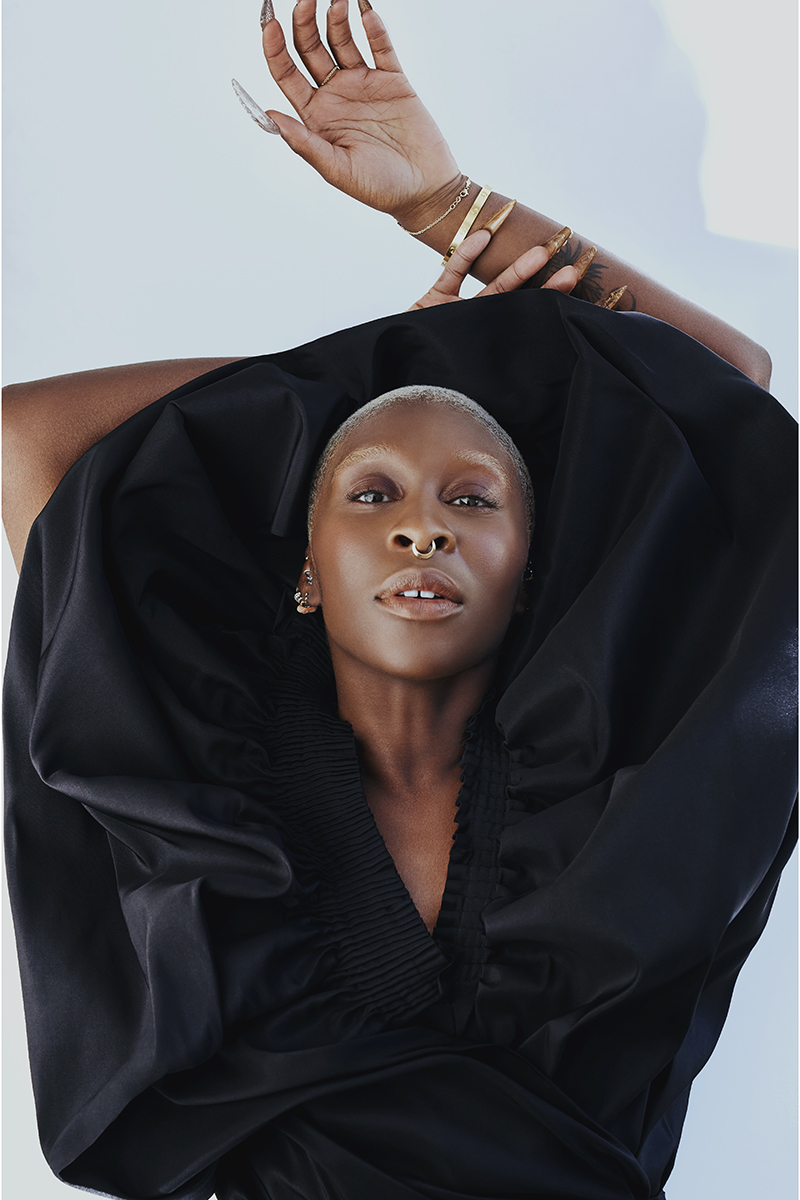
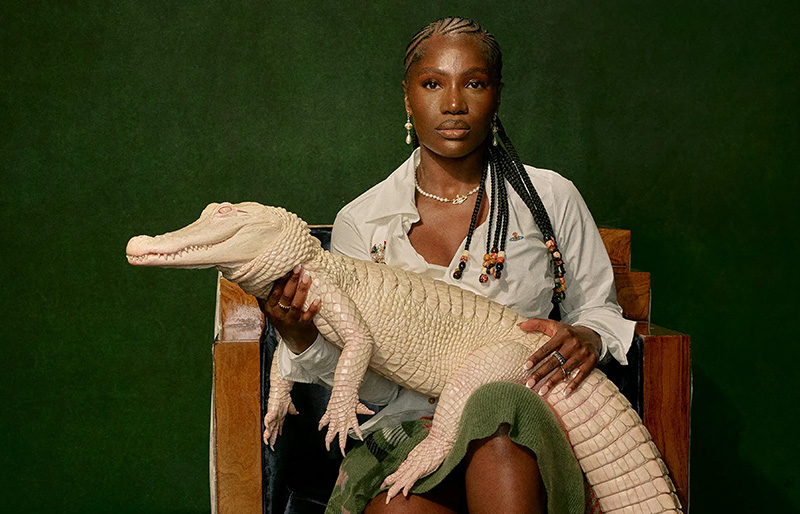













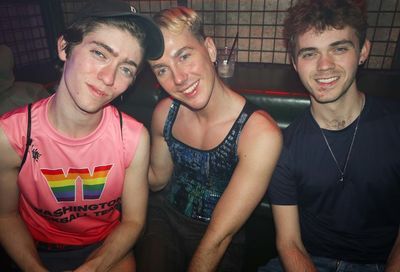
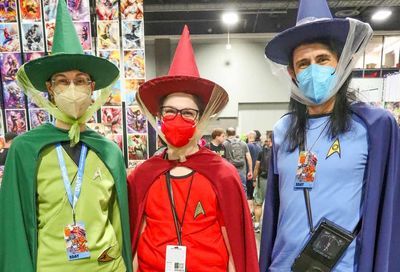
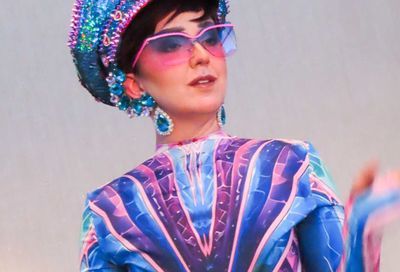
You must be logged in to post a comment.